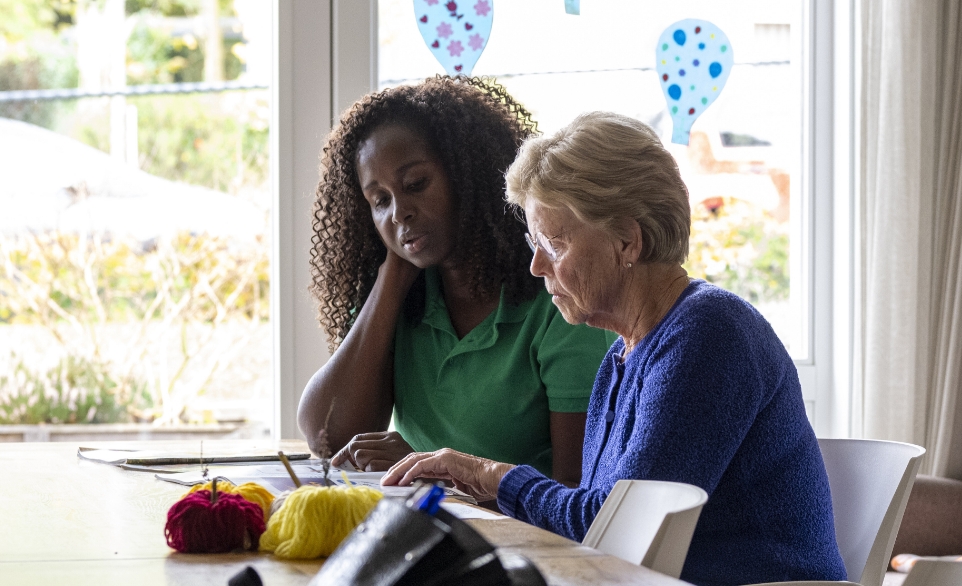
Caring is one of the most meaningful professions you can choose. Every day, you’re supporting people through some of their most vulnerable moments. You’re not just providing practical help — you’re offering compassion, patience, and human connection.
But with that comes something many carers don’t talk about openly: the emotional weight. Carrying the stories, struggles, and losses of others can be overwhelming. Over time, without the right support, it can impact your mental health, your physical health, and even your ability to stay in the profession.
At Big Sister, we believe carers deserve just as much care as the people they support. That’s why we’re talking honestly about the emotional side of caring — and sharing practical ways you can protect your own wellbeing.
For more insights and first-hand stories, visit our Life in Care Playlist on the @bigsistercare YouTube channel.
Understanding the Emotional Weight
Carers often say they “carry it all home.” You might replay difficult conversations in your head, worry about a client long after your shift, or feel powerless when someone declines despite your best efforts.
This emotional load comes from:
- Attachment: Building genuine bonds with the people you support makes loss and change harder to cope with.
- Responsibility: Knowing someone depends on you for safety and wellbeing is a huge weight to carry.
- Isolation: Many carers feel they have no one to share the full reality of their work with, leaving emotions bottled up.
- Grief: Carers experience bereavement regularly, but often without the space or recognition to process it.
It’s no surprise that stress, burnout, and compassion fatigue are common in the sector.
Case Study: Emma’s Story
Emma, a carer for older adults, describes the emotional impact of her work:
“I loved Mrs. Patel like family. I’d been caring for her for over two years. When she passed away, I went home and cried for days. But then I went straight into another shift. There wasn’t time to grieve, and I felt guilty for being upset. I didn’t realise until later how much I needed to talk about it.”
Emma’s experience is common. Carers give so much to others that they often forget their own need for support.
Why Protecting Your Wellbeing Matters
Looking after yourself isn’t selfish — it’s essential. When carers don’t protect their wellbeing, the consequences ripple out:
- For you: Stress can lead to exhaustion, anxiety, or depression.
- For those you care for: Burnout can reduce patience and compassion, which directly affects care quality.
- For the sector: High turnover leaves teams stretched, increasing pressure on everyone else.
By prioritising your wellbeing, you’re protecting not only yourself but also the people and communities you support.
Practical Ways to Protect Your Wellbeing
Here are strategies carers across the UK have found helpful:
-
Create Boundaries
It’s easy to let caring take over your whole life. Learn to set emotional boundaries. That might mean having a ritual at the end of each shift — a walk, a podcast, or a shower — to signal that work is over and home is a safe space.
-
Find Someone to Talk To
Whether it’s a colleague, a supervisor, or an online group, having someone who understands is vital. Talking about your experiences reduces the sense of isolation.
-
Take Breaks Seriously
Even a 10-minute tea break can reset your mind. Skipping breaks often leads to faster burnout.
-
Practice Self-Care Daily
Small acts matter: eating well, staying hydrated, exercising, or writing in a journal. These habits help build resilience.
-
Seek Professional Support if Needed
If you’re struggling, don’t hesitate to reach out for professional help. Counselling, therapy, or support lines can give you tools to manage stress and grief.
The Role of Employers
Employers in the care sector also have a responsibility to support staff. This includes:
- Regular supervision focused on emotional as well as professional wellbeing.
- Access to counselling or employee support programmes.
- Encouraging peer networks where staff can share and debrief safely.
- Recognising the emotional demands of the job, not just the physical ones.
When carers are supported, retention improves and care quality strengthens.
Finding Strength in Connection
The truth is, caring will always carry emotional weight — because it matters. If it didn’t affect you, it wouldn’t be real. But connection is the antidote to carrying it alone.
That’s why we’ve built platforms like Life in Care, to connect carers with each other. Hearing someone else’s story, sharing your own, or simply knowing others feel the same can make a huge difference.
Where to Go Next
If you’re feeling the emotional weight of caring, remember: you don’t have to do it on your own. Support is out there, and your wellbeing matters.
Visit our Life in Care Playlist on the @bigsistercare YouTube channel to hear real carers talk about how they cope, protect their wellbeing, and find strength in community.
Don’t forget to subscribe, so you always have support in your pocket, any time you need it.
Follow @bigsisterhomecare on Instagram for ongoing updates.
Download our brochure or book a call
Because caring for others begins with caring for yourself.













